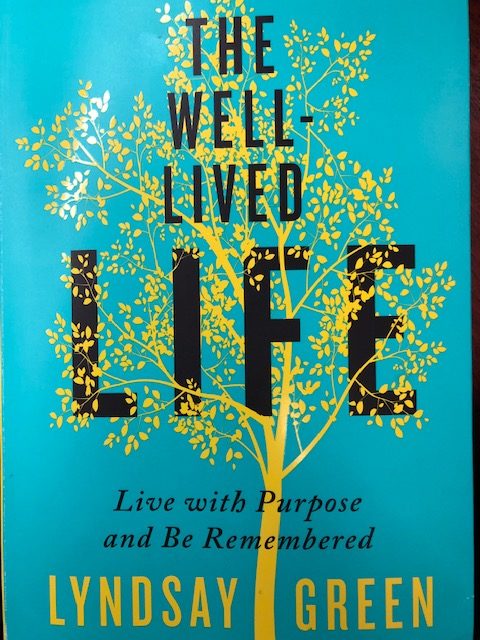
Lyndsay Green’s new book on legacy, The Well-Lived Life, sets itself an ambitious goal. Its subtitle is “Live with Purpose and be Remembered”. Mixing stories, philosophy and practical tips on estate planning and philanthropy this readable book makes a bold promise.
Creating a legacy is hardly a new goal, and each era of history is defined by a ruling philosophy or religion. Green’s guiding philosophy is secular and individualist. She is interested in living life with personal meaning, before it is too late. Green’s foci are private lives, relationships and families, not professional or public lives (aside from a few artists).
Stories and Acts
A gifted story-teller, Green assembles a combination of historical and literary stories with contemporary examples drawn from friends, neighbours and acquaintances. In the telling, she reminds us that legacy is as much in the quality of the narrative as the quality of the act. What can we do to be remembered? Tell a good story and write it down – or convey it in other ways such as a legacy app.
But the book also focuses on acts. What we do matters. Teachers, mentors, grandparents, parents all shape and change lives of those around them. Their lives and moral purpose lingers.
Green shares many conversion stories. People having an epiphany about their lives and relationships. The proverbial wake up call. We can turn things around – in part to be better and in part to be remembered in a more positive light.
Getting Practical
The book is at its weakest when it gets practical. The estate planning chapters on wills, bequests and executors are enjoyable but too vague to be helpful. The philanthropy chapter is a survey – a well-meaning skim of the subject. Not leaving a mess behind is driver of good planning. Doing good post-mortem is as much about well, doing good, as it is about the indirect benefit of creating a legacy for the donor.
The chapter I liked best is entitled “History Will Have Its Way with Us”, which is pithy and profound. Legacy can be created, but they can’t be fixed forever. I think of Sir John A. MacDonald. Canada’s founding father is now being recast as the architect indigenous cultural genocide. He had no idea. Our first Prime Minister was too much of a creature of his time to understand what it would mean to future generations.

2 Comments
Holly Ann Knott
January 17, 2019 - 2:56 pmI have read Lyndsay’s 2010 book “You could live a long time : are you ready?” which I thoroughly enjoyed. As a Canadian she writes from our perspective. She interviewed and reported on people’s experiences. I recall that people reported that they were happiest when they lived in mixed age communities. Now I will read her latest book and a few in between that I have missed. Thank you for bringing Lyndsay Green’s work to our attention.
Janice Meighan
January 17, 2019 - 3:39 pmGreat review Malcolm – thanks. I’m interested in reading the book even with the light treatment of practical help in the area of estate planning.
And, I agree with your last comment on Sir John A. I’d say, however, that we are all creatures of our time and place. Several generations from now, how will we be judged on any number of issues from climate change prevention to meat eating – especially when we know more today about the impact we are having on the future? History is written by the winners of any issue at the time. Generations following will continue to recast the people and issues, the legacies we leave, when they are able to look back.
Thanks again for the review.